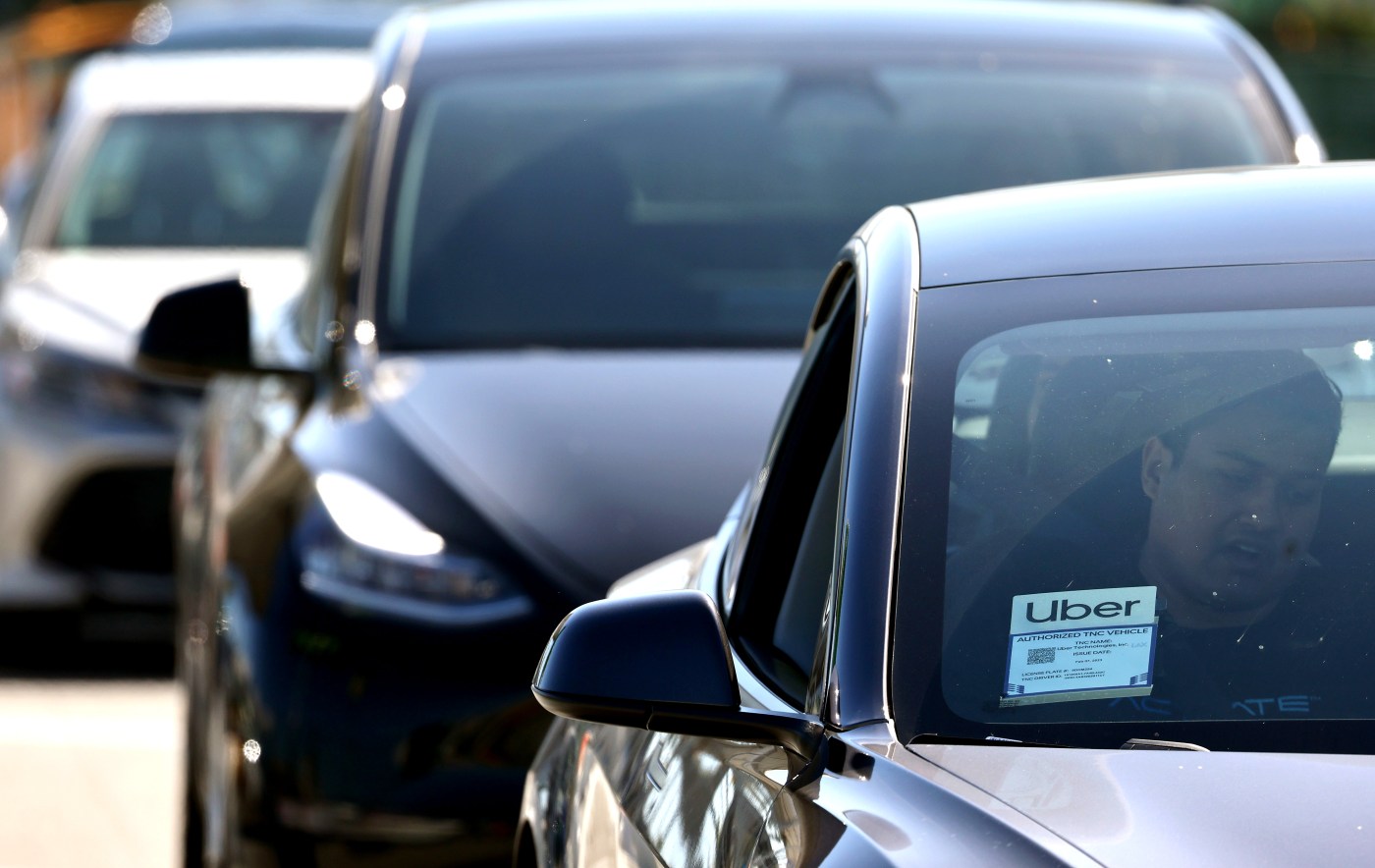
Out-of-state contributors shuttled millions to Massachusetts ballot question campaigns
A group backing a potential ballot question in Massachusetts that would classify app-based drivers as independent contractors rather than employees raised more than $6.8 million last year exclusively from the companies that have a large stake in the proposal.
Fundraising reports for 2023 that were filed recently with the state’s campaign finance office show millions flowed in last year from outside Massachusetts to ballot question campaigns pushing everything from allowing the use of psychedelics for mental health treatments to granting rideshare drivers the right to unionize.
Out-of-state businesses weighed-in heavily with donations to the Flexibility and Benefits for Massachusetts Drivers committee, the group advocating to reform the relationship between app-based drivers and companies like Uber, Lyft, Instacart, and DoorDash.
Uber, a California-based company, donated more than $2.4 million; Instacart, based in San Francisco, donated $1.7 million; DoorDash, also out of San Francisco, donated $1.6 million; and San Francisco’s Lyft donated $1.1 million, according to state records.
Flexibility and Benefits for Massachusetts Drivers spokesman Conor Yunits said the millions were spent on signature gathering efforts because of legal threats from opposition groups.
“Unfortunately, the trial lawyers and special interests who oppose driver independence immediately pledged to challenge every version of our question in court. We therefore collected signatures on five versions, incurring a significant expense. All five of our petitions have now been certified by the secretary of the commonwealth and submitted to the Legislature. We only expect to place one version on the ballot,” Yunits said in a statement to the Herald.
Massachusetts’ highest court threw off the ballot in 2022 a different version of the app-based driver classification question, finding that it dealt with too many matters for voters to consider. But the industry-backed group refiled the question and has so far cleared all hurdles in the march toward the 2024 election.
Massachusetts AFL-CIO President Chrissy Lynch said Uber and Lyft are “hell-bent on permanently carving themselves out of the employment, benefits, and consumer protection laws they are currently violating.” The labor organization previously supported the ballot question opposition group Massachusetts Is Not For Sale.
“These companies are prepared to drop tens of millions, maybe hundreds as they did in California, to buy themselves an exemption from basic laws for labor and liability. We are prepared to do everything we can to stop them. We aren’t going to allow Massachusetts to be a place that says you can break the law as long as you can afford to exempt yourself from it after the fact,” Lynch said in a statement to the Herald.
Yunits said the question would “deliver the independence that drivers demand and protect the services that so many consumers and small businesses rely on.”
“We are committed to ensuring that this ballot question succeeds,” he said in a statement.
A campaign looking to decriminalize psychedelics for mental health treatment raised $3.9 million in 2023, including millions from out-of-state businesses, self-described entrepreneurs, and a crypto executive.
The Massachusetts for Mental Health Options committee drew its largest single donation of $1 million from All One God Faith Inc., a California-based company better known as Dr. Bonner’s, the organic soap and personal care products producer.
A spokesperson for Dr. Bonner’s said CEO David Bonner was unavailable for comment this month because of his travels.
But in a December 2023 blog post, Bonner praised Massachusetts for Mental Health Options and a May 2023 story from Rolling Stone cataloged Bonner’s fundraising efforts for therapeutic uses of psychedelics like psilocybin, LSD, and MDMA.
“Learning lessons from Oregon and Colorado, I was pleased to see the 2024 ballot campaign, Massachusetts for Mental Health Options, commit to building on the groundwork laid by local psychedelic activists by pursuing an initiative that decriminalizes home grow and self-regulating community use for plant and fungal medicines, alongside setting up a regulated access program,” he wrote in the blog post.
Massachusetts for Mental Health Options also received $200,000 from David Balter, the Boston-based CEO of blockchain data company Flipside Crypto. The committee took in a $500,000 loan from Blake Mycoskie, the founder of Toms Shoes and co-founder of Madefor.
Another $450,000 came from Austin Hearst, who plays a leadership role in the Hearst Corporation, a media company known for owning newspapers like the San Francisco Chronicle and Houston Chronicle.
HubSpot Chief Technology Officer Dharmesh Shah donated $600,000 to the campaign.
“As you’ll see, our donor coalition includes individuals from across healthcare, technology, the arts, and mental health philanthropy, all of whom are committed to expanding access to care,” a spokesperson for the ballot question campaign said in a statement. “For individuals struggling with mental health challenges, particularly those that haven’t responded well to other clinical options, this is a critical and urgent action.”
A union-backed effort to allow app-based drivers the right to unionize raised just over $1 million. The campaign is primarily backed by 32BJ SEIU, the union representing service workers.
All the donations to the Massachusetts ballot question push came from either an operating account based out of New York associated with 32BJ SEIU or SEIU’s Washington, D.C. operation.
An official connected to the campaign, who agreed to speak only on background, said the out-of-state donations were a result of accounting procedures and the effort has support in Massachusetts.
SEIU 32BJ Assistant to the President Roxana Rivera said taking on “huge multinational corporations” requires the “full power” of local and international union members.
“We are proud that they are standing with Massachusetts drivers to improve working conditions here. That said, the fight is very much a local one with local drivers leading the organizing effort across the state to make it possible to form a union in the state. To do that, we’re going against huge tech giants that, as you can see from the filings, have massive amounts of money at their disposal,” Rivera said in a statement to the Herald.


